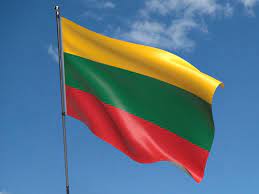Two UK-based innovators in the renewable energy space are stretching their wings, both westwards and eastwards.
Oxford-headquartered Velocys, convertors of end-of-life plastics into sustainable aviation fuel (SAF) , is opening its new 52,500 square feet factory in Ohio, due to house assembly operations for the reactor cores essential to its production of low-carbon avgas.
After agreement and a grant from local officials, the 52,000 square foot plant will start building up to 48 cores per year from mid-2024.
That level of output will yield, the company believes, the twelve reactors which a single commercial-scale SAF biorefinery might need to convert dead household and industrial plastics into carbon-light aviation fuel, giving around approximately 1TWh per year of energy.
Velocys’ CEO Henrik Wareborn said: “Our Ohio state-of-the-art facility is a real milestone both for us and for the move to decarbonise the aviation industry.
“It is another critical piece in the jigsaw to go alongside the support we are receiving from regulatory and policy initiatives in all our core markets. I would like to offer my thanks to the state of Ohio, and to the many contractors who have completed this project in such a short time”.
Meanwhile Gatwick-based renewable heat innovator Naked Energy today expands its European presence, partnering with Lithuanian building maintenance and management company City Service Engineering.
Heat decarbonisers Naked Energy have solar thermal and PV-based technology that combines the warming capabilities of both sources, while furnishing electricity.
CEO and founder Christophe Williams says the firm’s highly energy-dense hybrid solar PVT technology delivers up to four times the carbon savings per square metre that conventional solar PV can achieve.
Performance like that gives Naked’s hybrid panels the advantage of decarbonising heat most cost-effectively where insolation space is limited.
That quality makes Naked’s kit a compelling proposition in chilly Lithuania. The Baltic nation imports all of its gas and was Europe’s first to suspend Russian imports, after Putin’s unprovoked assault in February 2022 on Ukraine.
Since then, ministers in Vilnius have accelerated its investment into solar. They now aim for one-third of Lithuania’s 1.4 million households to generate their own electricity by 2030.
Said Williams: ‘City Service Engineering has a fantastic reputation and long-standing relationships with companies across its 25 years of operations in Lithuania and Latvia.
“We are thrilled to be working with them and helping their customers in their transition to renewable heat.




